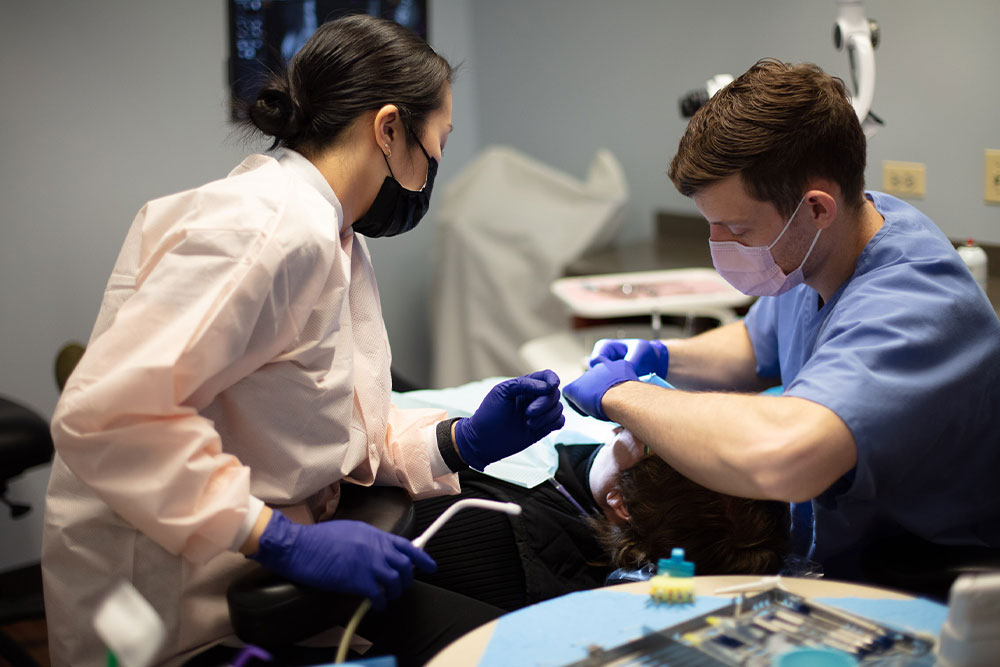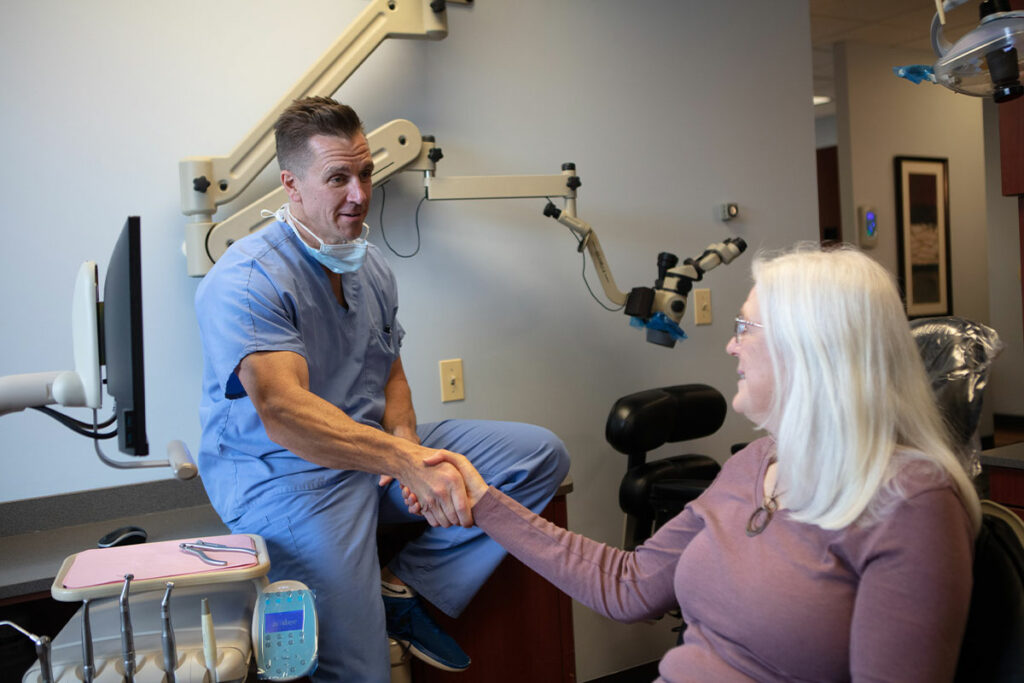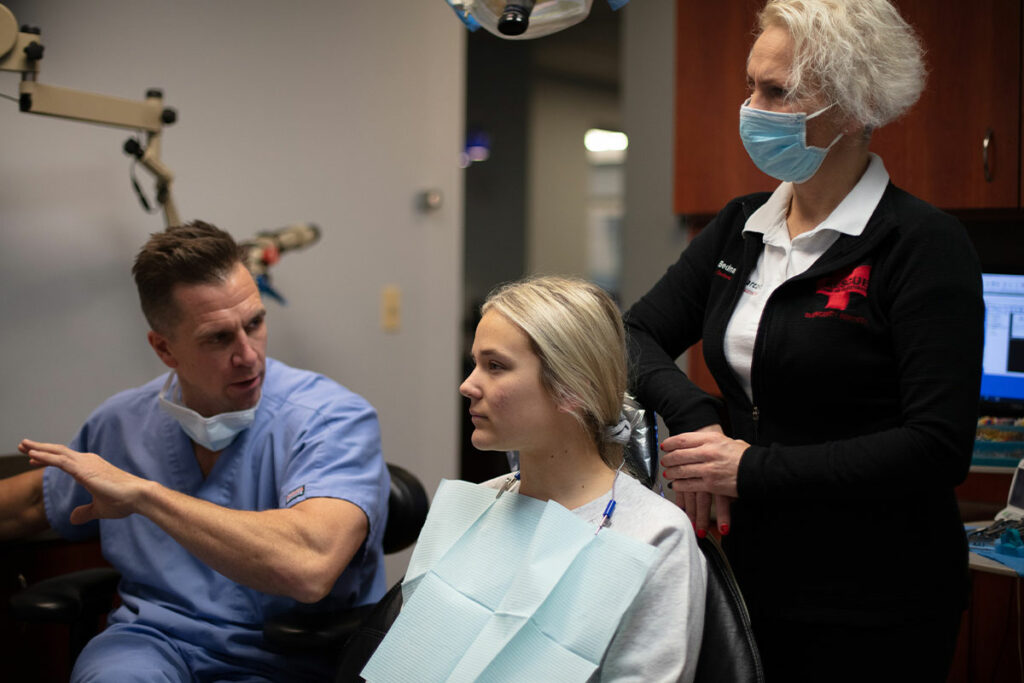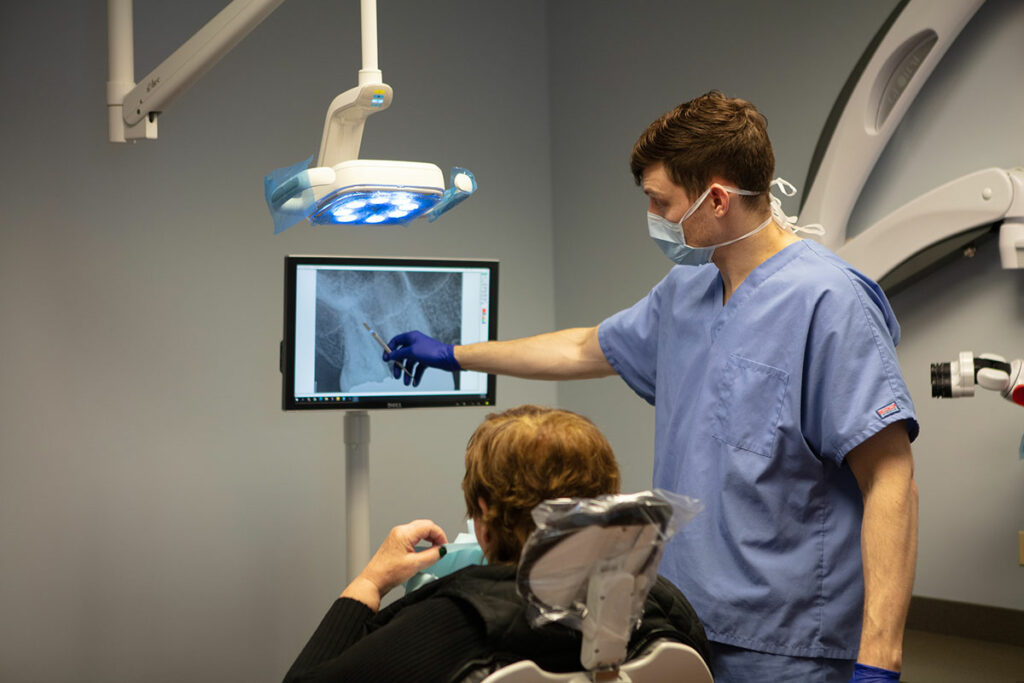Root Canal Therapy

- Root Canals Explained – See Image
- Abscessed Tooth – See Image
- Endodontic Treatment Root Canal – See Image
- Root Canal Damaged Pulp – See Image
- Root Canal Access Opening – See Image
- Root Canal Filing – See Image
- Root Canal Post – See Image
- Root Canal Healed – See Image
At Northwest Endodontics, we work closely with referring dentists to do everything we can to help our patients preserve their natural teeth. Sometimes, when a tooth becomes compromised due to injury, disease, decay, or another reason, treatment with root canal therapy becomes necessary to save the natural tooth and avoid the need for tooth extraction.
What Is Root Canal Therapy?
A root canal is a tooth’s interior channel that extends from inside the tooth’s crown down through the roots. The root canal contains soft tissues (nerves and blood vessels) called the pulp.
When a tooth is damaged from injury, disease, extensive tooth decay, or compromised dental work (such as old amalgam fillings coming loose), the pulp inside a tooth can become infected with bacteria.
Root canal therapy (also sometimes referred to as a root canal) is a treatment designed to remove injured or infected pulp from the interior of a compromised tooth, fill the root canal, and seal off the tooth to prevent further infection.
Why You Might Need a Root Canal
A root canal is typically required when a tooth has incurred enough damage that its overall structure has been weakened and compromised, exposing its interior pulp to bacteria and infection.
Typically, a root canal is required in cases that are too severe to be adequately treated with a traditional dental filling but not serious enough to necessitate the extraction of the tooth.
Is Root Canal Therapy Painful?
Root canal therapy has a reputation for being a painful procedure. With modern endodontic treatments, however, we can ensure that patients experience no pain or discomfort during their treatments and can easily mitigate pain during recovery.
We use local anesthetics to numb the treatment area and can administer nitrous oxide to help patients relax during treatment. Our team recommends using a cold compress and over-the-counter anti-inflammatory medications (ibuprofen, acetaminophen, or aspirin) to reduce swelling and relieve pain after treatment.
What Happens After a Root Canal Treatment?
Patients rarely experience complications following root canal therapy. However, if you experience significant swelling or pain that cannot be adequately managed with over-the-counter pain medication, contact our office right away.
When your root canal therapy is complete, our office sends a record of your treatment to your restorative dentist (usually your referring dentist). We recommend contacting their office for a follow-up restoration (permanent dental crown placement) within two to three weeks of treatment at our office.
Your restorative dentist will determine the type of dental crown that can best protect your natural tooth.
How Much Does Root Canal Therapy Cost?
The cost of root canal therapy varies based on the patient’s individual treatment needs, the severity of the damage, which tooth needs treatment, and the patient’s insurance coverage. Our office can provide an estimate of anticipated costs prior to treatment.
Comprehensive Endodontic Care in Park Ridge and Mount Prospect
At Northwest Endodontics, we’re proud to provide our patients with comprehensive endodontic care using advanced diagnostics and treatment tools. To learn more about root canal therapy, refer a patient to our office, or schedule an appointment, we welcome you to contact us today.

 MEET DR. FITZGERALD
MEET DR. FITZGERALD
 MEET DR. PRZYBYLO
MEET DR. PRZYBYLO
 MEET DR. ATASSI
MEET DR. ATASSI
 PATIENT FORMS
PATIENT FORMS PATIENT PORTAL
PATIENT PORTAL FINANCING AND INSURANCE
FINANCING AND INSURANCE YOUR FIRST VISIT
YOUR FIRST VISIT








